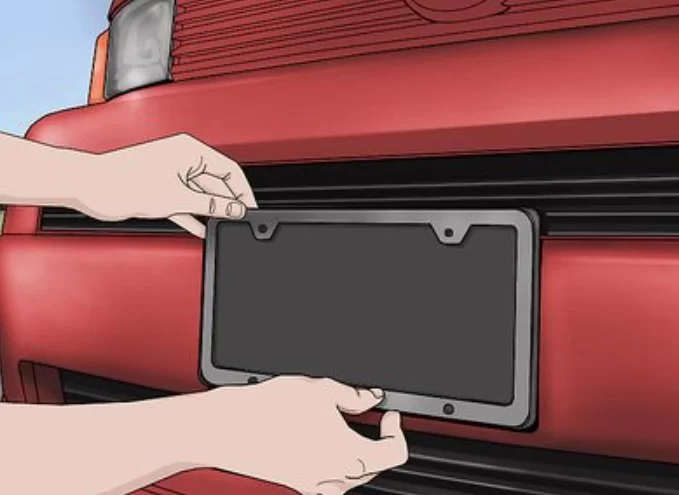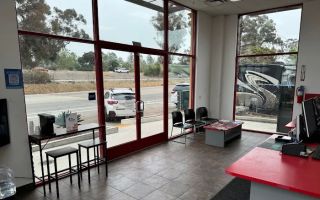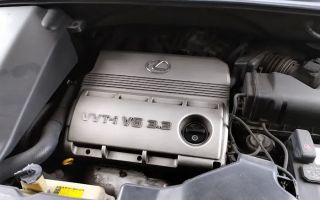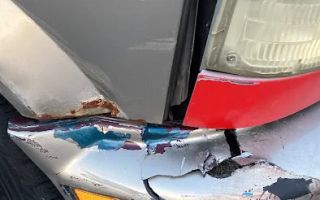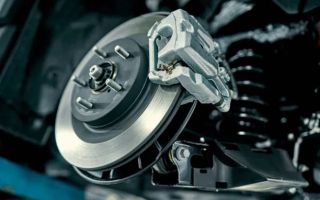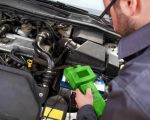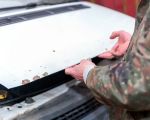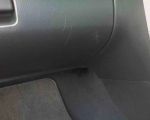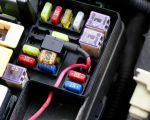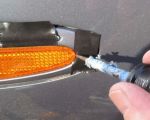- 1-why-you-might-need-to-replace-your-license-plate-frame
- 2-tools-you-need-before-starting
- 3-step-by-step-guide-to-replacing-your-license-plate-frame
- 4-common-mistakes-to-avoid-during-installation
- 5-real-car-owner-experiences-and-practical-tips
- 6-how-to-choose-the-right-license-plate-frame
- 7-why-rescue-towing-recommends-regular-frame-checks
1. Why You Might Need to Replace Your License Plate Frame
Many car owners overlook the small but important detail of their license plate frame. Whether you live in a state with snowy winters or drive through coastal salt air, your frame can corrode, crack, or loosen over time. Understanding how to replace your car’s license plate frame is an easy way to keep your vehicle looking fresh and road-legal.
Aside from aesthetics, a broken frame can obscure your license plate number—something that can get you a ticket in many U.S. states. Some drivers even replace frames for personal expression, adding a chrome finish, carbon fiber texture, or custom message. Keeping it in good shape protects your plate and enhances your car’s appearance.

Pick Your Part - Help Yourself
1232 Blinn Ave, Wilmington, CA 90744, USA
2. Tools You Need Before Starting
Before diving in, gather a few simple tools. Replacing a license plate frame doesn’t require professional equipment, but having the right supplies ensures a smooth and scratch-free process:
- Flathead or Phillips screwdriver (depending on your car’s screw type)
- Socket wrench (for rusted or stubborn screws)
- Microfiber cloth and mild cleaner
- New license plate frame (preferably rust-resistant stainless steel or ABS plastic)
- Optional: anti-rust spray or clear coat for added protection
These items are inexpensive and available at most auto stores. Some car enthusiasts prefer to add rubber gaskets or screw caps for a cleaner finish and better protection against vibration.

Pick Your Part - Greer
13054 E Wade Hampton Blvd, Greer, SC 29651, USA
3. Step-by-Step Guide to Replacing Your License Plate Frame
Replacing your license plate frame is a simple DIY job that takes less than 15 minutes. Follow these detailed steps to ensure a secure and stylish installation:
Step 1: Remove the Old Frame
Use your screwdriver or wrench to loosen the screws holding the old frame. If they’re rusty or stuck, apply a drop of WD-40 and wait a minute before turning. Keep the screws—you may reuse them unless they’re damaged or corroded.
Step 2: Clean the Mounting Surface
After removing the frame, clean the area where the license plate rests. Dirt, rust, and debris can accumulate over time, which might scratch the paint or weaken the mounting surface. Use a microfiber cloth and a gentle cleaner for best results.
Step 3: Align the New Frame
Place your license plate into the new frame and align it with the mounting holes. Make sure the frame doesn’t cover any registration stickers or obscure plate numbers. In some states, covering even a small portion of your plate can lead to fines.
Step 4: Secure the Screws
Insert the screws through the holes and tighten them evenly. Avoid over-tightening, as it can crack plastic frames or strip the screw threads. A snug fit is all you need to keep the frame secure and rattle-free.
Step 5: Double-Check Alignment
Stand a few feet back to make sure the plate looks level and centered. If it’s crooked, loosen one side slightly, adjust, and re-tighten. Attention to small details gives your car a professional, polished look.
4. Common Mistakes to Avoid During Installation
While replacing a license plate frame seems straightforward, a few common errors can cause frustration later. Avoid these pitfalls to keep your frame looking sharp and secure:
1. Using the Wrong Screws
Not all cars use the same screw type. Some require self-tapping screws, while others use machine-thread bolts. Check your vehicle’s manual or take an old screw to the store for comparison before buying replacements.
2. Forgetting Anti-Rust Protection
Exposed metal screws can rust quickly, especially in humid climates. A small dab of anti-seize compound or clear coat prevents future corrosion and makes removal easier next time.
3. Covering Registration Stickers
Make sure your frame design complies with local laws. Many drivers unknowingly buy oversized decorative frames that obscure registration tags, leading to avoidable fines.
5. Real Car Owner Experiences and Practical Tips
Take, for example, Mark from Arizona, who decided to replace his faded plastic frame after a road trip through the desert. He noticed that heat and sand had warped the corners, causing annoying vibrations. After switching to a stainless steel frame with rubber spacers, his plate stayed perfectly quiet—even on rough terrain.
Meanwhile, Lisa, a car enthusiast from Michigan, prefers carbon fiber frames for their sleek look and lightweight design. She also recommends checking the tightness of your screws every few months, especially after winter when temperature changes can cause metal expansion and contraction.
6. How to Choose the Right License Plate Frame
Not all license plate frames are created equal. Choosing the right one depends on your car’s design, local regulations, and personal taste. Here’s what to consider:
1. Material
Metal frames offer durability and a premium look but may corrode over time if uncoated. Plastic frames are lightweight and affordable but may crack under stress. Powder-coated aluminum provides the best of both worlds—strength and rust resistance.
2. Design and Fit
Opt for slim-edge or minimalist designs that don’t cover important parts of your plate. Some modern frames even include built-in LED lights or anti-theft screw caps for added security and style.
3. Weather Resistance
If you live in regions with snow or salt exposure, choose frames labeled “weatherproof” or “corrosion-resistant.” This ensures longevity and prevents peeling or discoloration.
7. Why Rescue & Towing Recommends Regular Frame Checks
At Rescue & Towing, we believe small maintenance steps prevent larger vehicle issues down the road. Your license plate frame may seem insignificant, but loose or damaged frames can lead to noise, scratches, and even lost plates while driving.
Our automotive experts suggest checking your frame at least twice a year—once before winter and again in spring. Regular inspections help catch early signs of wear and prevent legal or cosmetic problems. Plus, with so many stylish frame options on the market, it’s an easy way to refresh your car’s exterior and express your personality.
Knowing how to replace your car’s license plate frame gives you both confidence and control over one small but essential part of vehicle upkeep. A few minutes of attention today can save you time, money, and stress tomorrow—keeping your ride safe, sleek, and road-ready.

